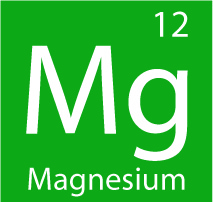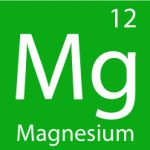Perhaps you have seen magnesium supplements on the shelf at your local pharmacy with this label and you were left wondering just what is magnesium citrate.
 First you need to understand what magnesium does and why you need to take magnesium supplements for your optimum health.
First you need to understand what magnesium does and why you need to take magnesium supplements for your optimum health.
What is Magnesium Citrate For?
Magnesium effects many of your body’s systems and assists them to function properly.
It’s prevalence in our body as a mineral is surpassed only by sodium and calcium and it is one of what is known as one of the macro minerals. Magnesium is not manufactured by the body at all and so is required in large amounts.
Humans used to be able to consume the recommended daily intake of 320mg – 420mg per day (NIH) simply from their food alone. Unfortunately due to modern farming practices which have reduced the amount of magnesium in the soils, and consequently our fresh fruit and vegetables this is no longer possible. Check out this list of magnesium rich foods to calculate your current daily intake.
The use of magnesium supplements is becoming much more popular as consumers are growing awareness of the importance of magnesium for healthy living.
Some of the essential functions provided by magnesium include:
- regulation of blood pressure and heart rate
- effectively assisting enzyme function and digestion
- maintaining electrolyte balance between sodium, calcium, potassium and magnesium
- smooth muscle and nerve function
- strengthening bones
- preventing calcium buildup so preventing gallstones and kidney stones
- energy production
Click here to see the symptoms of magnesium deficiency and find out if you are at risk.
What are Magnesium Supplements?
If your recommended daily intake falls short of the advised amount despite eating a balanced diet, then it is a good idea to supplement your intake. There are a myriad of options available depending on the different absorption rates and mode of delivery of each form of magnesium. Here is a list of the best magnesium supplements. One of the most popular choices is magnesium citrate.
What is Magnesium Citrate?
Magnesium citrate is magnesium combined with citric acid. It is commonly found in tablet and powder preparations of magnesium supplements and is also often used in more concentrated doses as a laxative. Magnesium citrate is also the active ingredient in bowel prep for colonoscopy or major bowel surgery when the intestine needs to be completely emptied.
Magnesium citrate works by drawing water back into the bowel thereby loosening the stools and inducing defecation.
The magnesium citrate is effective in the relief of painful muscle cramps and is best taken in the powdered form before and after exercise to ease this.
Magnesium citrate in the pill form is also useful in the prevention of kidney stones as it disallows the calcium buildup from occurring or recurring stones.
Its level of absorption and subsequent bioavailability place magnesium citrate as more effective than magnesium oxide but with a lower content per mass which means a larger pill to swallow.
Magnesium citrate is not as effective as magnesium gluconate in terms of it’s bioavailability and compared to gluconate’s superior solubility.
What is Magnesium Citrate? – Options for Use
Magnesium citrate is a valid choice for magnesium supplementation complementary to a balanced diet. One of the symptoms of magnesium deficiency especially in those over 50 is constipation so in some cases the gentle laxative effect is beneficial.
Here is an example of Magnesium Citrate Tablets
available on Amazon. Click on the picture for further information. The dose of elemental magnesium is 400mg per tablet so this would be a valid choice for getting your magnesium easily and conveniently with the administration of just one tablet daily. However in some cases this might have a dramatic GI disturbance effect causing diarrhoea. This
supplement on the left contains magnesium stearate which is an anti-caking agent and lubrication added during processing to prevent the product from sticking to the factory machinery.
For a supplement that does not include stearate, click on the link right.
1 Magnesium Citrate Vegetable Caps has a lower magnesium content but does not contain magnesium stearate which may be considered harmful in high doses and some studies even report that it might go as far as to slow down the absorption rate of good magnesium in the digestive tract. (www.draxe.com)
Magnesium Citrate Powder such as this BulkSupplements Pure Magnesium Citrate Powder is more easily digested than the tablets and you can take a gradual dose throughout the day to minimise the sudden effects of laxation. Click on the picture for further information.





Permalink //
Hi, everything is set up beautifully. you may want to add carrots, beets and apple as part of your food sources.
Why do you have more animal based sources of magnesium than plant base, why get your magnesium second – hand.
Other than that, your website is very informative, easy to read, images marching the contents as well as very colorful.
Blessings to you.
Permalink //
This is a good point Wendy.
If you have a look at the magnesium rich food chart here you will see that out of the top 20 magnesium rich foods, only the top 2 are animal based – mackeral and halibut. The rest are plants, grains and nuts.
The list is arranged in order of the top magnesium containing foods and the fish go to the top of the list because they are full of magnesium from the ocean.
Thanks, Kristine.
Permalink //
Hi Kristine, i was unaware of what magnesium is the wthe different problems one may suffer if they are magnesium defiecient. And you have written it in so beautiful way that any body who wants to know about magnesium will definitely understand within one go.
Thank you for making me understand all the benefits of magnesium and also for providing info on sources of magnesium.
Keep it up and keep on helping people with this kind of info.Cheers!!
Permalink //
Hi Narender,
Thanks for commenting.
Best of Health to you!
Kristine
Permalink //
Your article on Magnesium Citrate is very interesting. Do magnesium supplements help with water retention? I find as I get older I retain water, even though I did not when I was young. I do not want to take prescription “water pills.”
I believe citrate is just a form of citric acid. I have no tolerance for citrus and therefore do not eat any of the fruits that produces citric acid. Perhaps that could be a contributing factor and a Magnesium Citrate supplement could be the answer.
Permalink //
Hi Wendy,
Magnesium citrate is, as you have stated above magnesium with citric acid. This variation of magnesium is unique in that it draws fluid from the body and excretes it in the bowel lubricating the stool and inducing defecation. In this way it is possible that magnesium citrate would help with water retention to some degree but it may cause diarrhoea and subsequent dehydration if used incorrectly.
I find splitting up my daily dose of magnesium citrate powder into 3 doses throughout the day helps me to balance regular bowel function without causing diarrhoea.
If you have an intolerance towards citric acid, I would recommend consulting with your doctor prior to starting magnesium citrate.
Check out instead some of the more absorbed and better tolerated forms of transdermal magnesium chloride instead. Click here for more details on magnesium chloride.
Permalink //
Are there any symptoms when you have not ingested enough Magnesium Citrate? Is it a big health issue? If I eat a lot of fish, will this help my levels so supplements are not needed? Also, can you find this in the normal daily vitamin? Seems that if we took all these different ones to accommodate for what is not in our foods, we would end up taking a ton of various pills and capsules.
Permalink //
Hi there,
A lot of your multivitamins may contain a small amount of magnesium, however the unfortunate thing is that the source and form of this magnesium of often a magnesium chloride which is favoured by drug companies for its high dose to low mass. The problem here is that magnesium chloride is one of the most un-bioavailable of all the magnesium supplements and you only absorb around 4% of the actual dose contained.
So, if your multivitamin contains 100mg of magnesium chloride, you will only absorb 4mg in total which doesn’t come close to providing you with adequate daily magnesium.
Have a look at this magnesium rich food chart and see how much you may be getting from your diet alone. You may be among the healthy 25% of the population who is actually getting enough.
Thanks for your comments here,
Kristine G